The stories of five Hungarian kings who had an extraordinary reign
The first Hungarian king (Stephen I of Hungary) was crowned in 1000 or 1001 and his reign lasted until 1038. Since then many kings followed him on the throne. Some of them were kings loved by the public but there were some who did not have a great reputation. Also, there are some kings in Hungarian history who did something great for the nation or had some very strange habits. Here are five Hungarian kings who had an exceptional reign.
Andrew II of Hungary (Reign: 1205–1235)
He was born in 1177 and as he was the second born son in the family he did not get the throne first when his father died. Although his father helped him to get the throne of Galicia in 1188 he was chased away to years later and returned to Hungary. After his father’s death, his brother Imre got the throne which ended up in conflict as Andrew attacked him with his army. The Pope managed to stop the brothers’ war in 1200 but later another conflict was born between them. After several other incidents, he was crowned king of Hungary on May 29, 1205.
His reign is considered to be the most famous and significant one in Hungarian history. Because of his dynamic and energetic political views, he was the first one who got the full support of the Balcanic region.
He established the Golden Bull in 1222 which was one of the first examples of constitutional limits being placed on the powers of a European monarch. These laws established the rights of the Hungarian nobility and many points and laws were used in Hungary without any changing until 1848. The Golden Bull is often compared to Magna Carta.
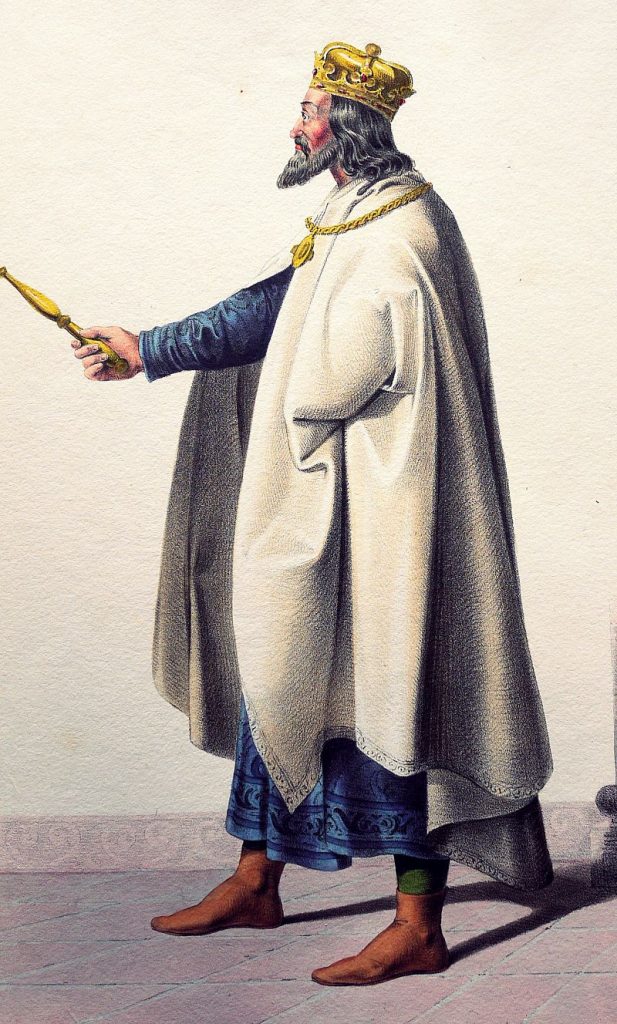
Andrew II of Hungary (Photo: Wikimedia Commons by Joseph Kriehuber)
Béla IV of Hungary (Reign: 1235–1270)
He was born in 1206 and was the oldest son of Andrew II. After his father’s death in 1235, he succeeded him and attempted to restore the royal authority in Hungary because his father gave every available land to the public and the public took the king for granted. To reach his purpose, Béla started to revise these lands from their owners and his reputation soon began to become worse and worse.
In 1241 the Mongols started to broaden their Empire and attacked several European countries, including Hungary. After the Hungarian army lost the battle of Muhi in 1241, the king escaped from the country and hid in the town of Trogir (today Croatia). Although he survived the invasion the Mongols destroyed the country and took many people as slaves and robbed several towns and villages. The country was ruined completely.
Béla IV is often called the ‘Second Founder of the State’ because after the invasion he intended to solve the missing number of populations with inviting foreigners in the country. Also, he learned from every mistake after the Mongol destruction and ordered to strengthen the Hungarian army with nights and that every Hungarian castle must be built out of heavy rocks in order to be safer and be able to defend the Hungarian residents more effectively.
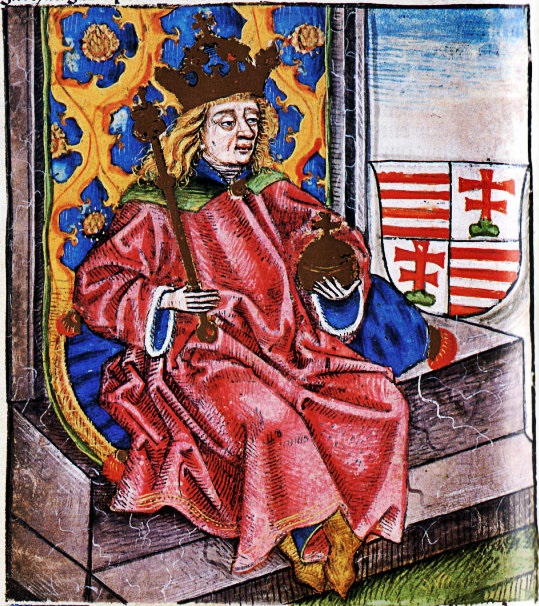
Béla IV of Hungary (Photo: Wikimedia Commons by János Thuróczy)
Sigismund, Holy Roman Emperor (Reign: 1387–1437)
Besides King of Hungary, he also owned the title of King of Germany, Bohemia, and Croatia. He is considered to be one of the most educated historical persons and spoke several languages including French, German, Hungarian, Italian and Latin. He was also an outgoing person who not only watched but took part in tournaments.
He was crowned King of Hungary in 1387 and his reign lasted for 50 years. He is the second person in Hungarian history with the longest reign as king behind Franz Joseph.
During his 50 years long reign he tried to restore the weakened authority of the central administration which took decades of hard work. To ease the pressure the Hungarian nobles had he invited several foreign advisors and tried to employ them which was an unpopular decision he made. Also, he had to promise that he would not give land and support anyone but Hungarian nobles and residents only.
On a number of occasions, Sigismund was imprisoned by the Hungarian nobles because of his unpopular decisions but was rescued and regained his power by his friends and allays.
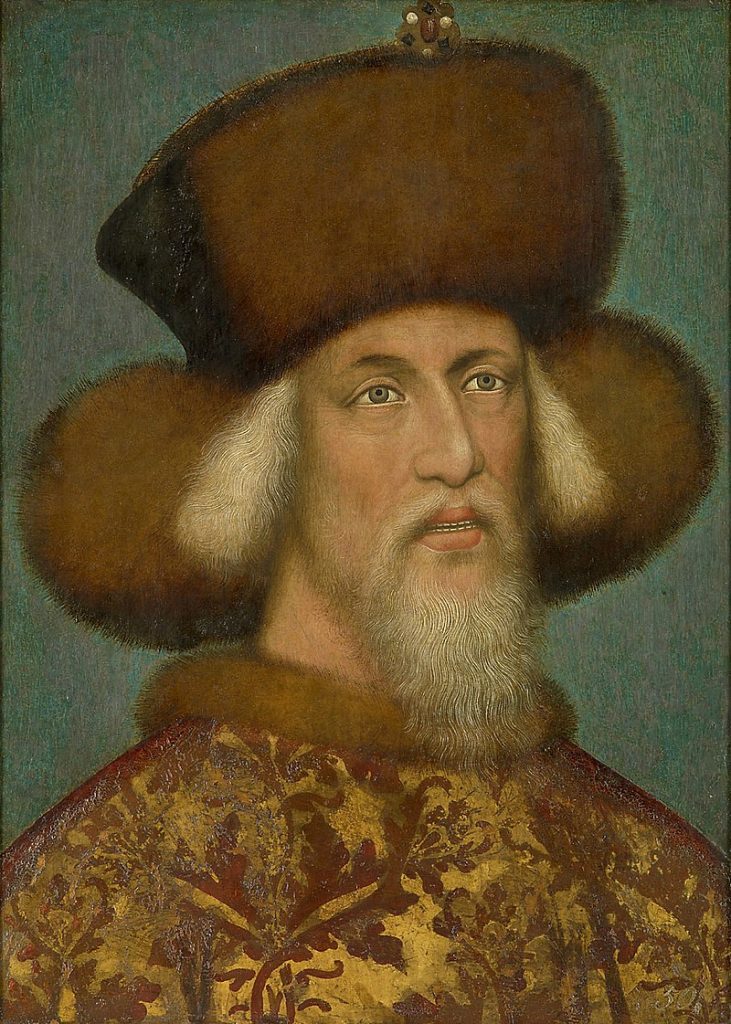
Sigismund, Holy Roman Emperor (Photo: Wikimedia Commons by Pisanello)
Joseph II of Austria (Reign: 1780–1790)
He was born in 1741 as the eldest son of Empress Maria Theresa. He was the first ruler of the Habsburg-Lotaringien House who got the throne of Austria in 1765. He became the King of Hungary on November 29, 1780, but he was different than the other kings.
He was the only person in Hungarian history who refused to be crowned with the Holy Crown of Hungary. This way he was free of every kind of obligations and did not have to guarantee to keep the laws and rights of the Hungarian state. This step was inevitable to form the political and economic system to his imagination. Just like her mother, he led the country with statues and never called the Parliament together.
He was obsessed with statues and until the end of his reign, he wrote two each day which means that by 1790 he approved approximately 6,000.
Although most of these statues were favorable and helped the country, the method of writing two each day went against the traditions. The state did not have enough capacity to implement these statues because there were too many and some of them were truly unpopular. For example, one statue banned funerals with coffins because the making of coffins was too expensive.
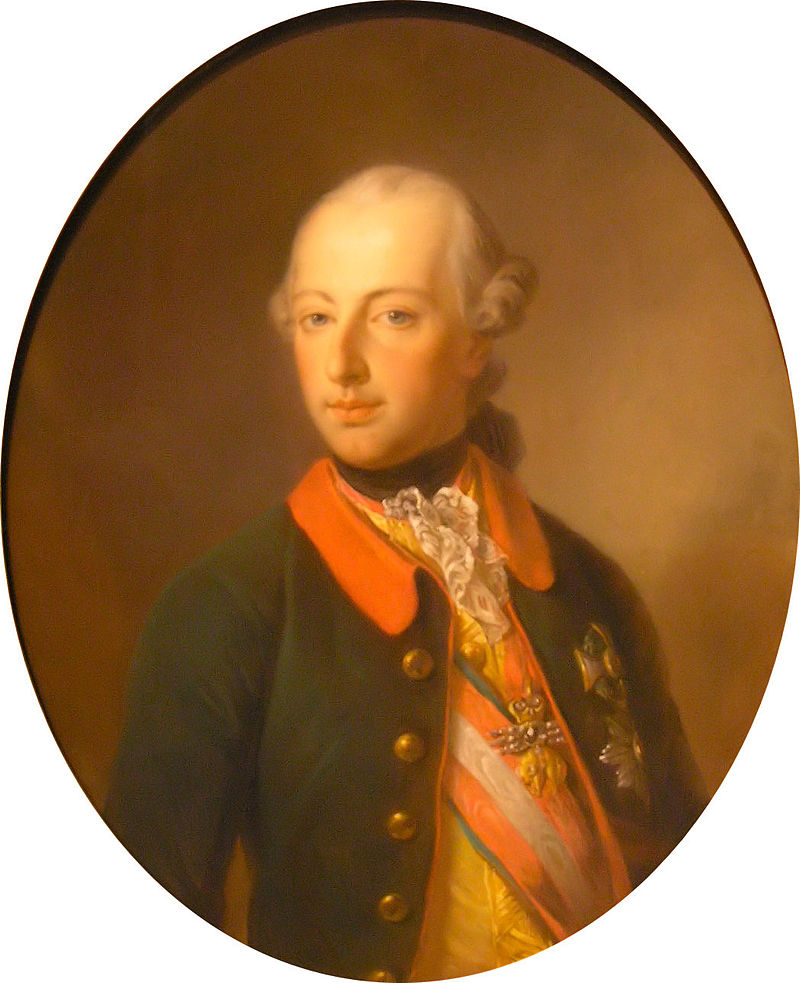
Joseph II of Austria (Photo: Wikimedia Commons by Georg Decker)
Charles IV of Hungary (Reign: 1916–1918)
Born on August 17, 1887, he was the last Emperor of Austria (Charles I) and King of Hungary. His coronation stands out of all the Austrian-Hungarian ceremonies because that was the first one when the Hungarian Anthem was sung and not the Imperial anthem. Charles IV inherited a politically and economically unstable Hungary at the beginning of World War I.
From the beginning of his reign he was eager to find the possible way to reach peace in the Monarchy and to avoid war. He strongly believed in the power of peace and tried everything he could to bring that in the country.
On November 11, 1918, he had to resign, and Hungary officially became a republic. He tried to reclaim the throne again in the beginning of the 1920s, but he failed. Charles IV was highly praised by the Catholic Church because he always put religion ahead of politics. In 2004, Pope John Paul II declared Charles blessed.
“Karl was a great leader, a Prince of peace, who wanted to save the world from a year of war; a statesman with ideas to save his people from the complicated problems of his Empire; a King who loved his people, a fearless man, a noble soul, distinguished, a saint from whose grave blessings come.” – Herbert Vivian, British journalist and writer.
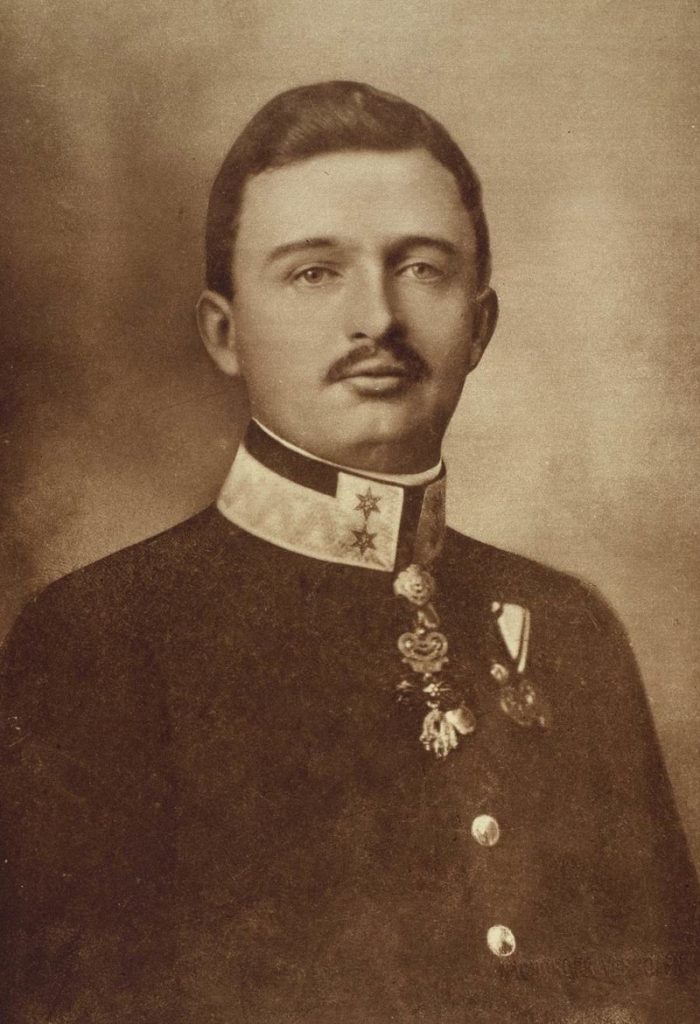
Charles IV of Hungary (Photo: Wikimedia Commons)
Featured image: Wikimedia Commons by Johann Peter Krafft
Source: Wikipedia, www.magyartortenelem.lapunk.hu
please make a donation here
Hot news
Trump: Hungarians fight to save Western civilisation
Great news: World’s first retail chain opens new store at Budapest Airport
Hungarian government hopes for a conservative turn in Europe and the US
Trump: Can’t wait to work with Viktor Orbán again as President! – VIDEO
Speakers at CPAC Hungary want to fight against ‘woke ideology, illegal immigration, anti-Semitism’
Will SPAR withdraw from Hungary? Find out the answer here!


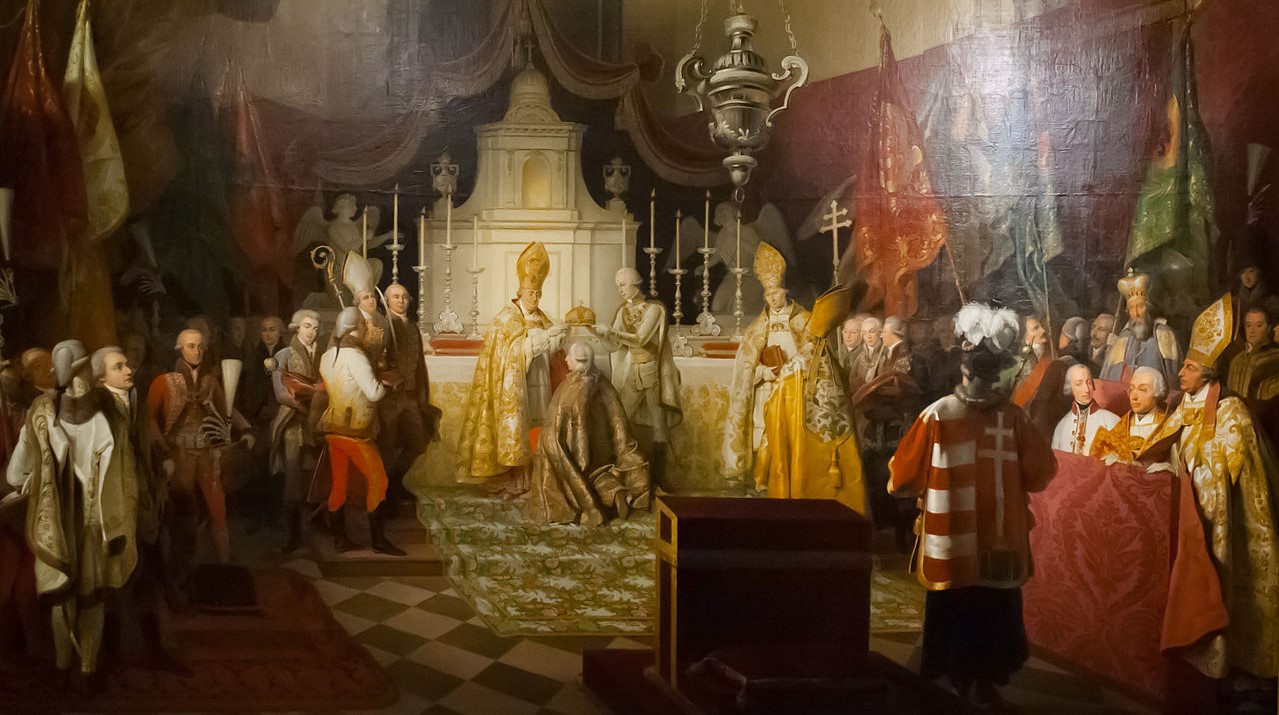

1 Comment
ANDREW II OF HUNGARY (REIGN: 1205–1235) He was born in 1177 and as he was the second born son in the family he did not get the throne first when his father died………….. After several other incidents, he was crowned king of Hungary on May 29, 2015.
Very strange date of crowning…..